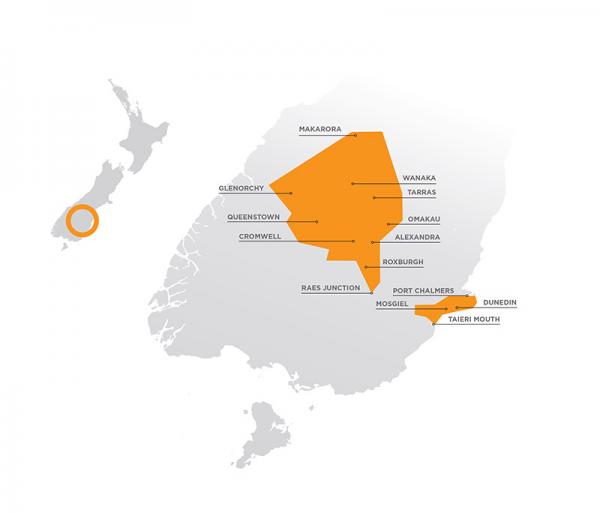
The commission is preparing to receive an application from Aurora Energy to invest around $400 million in its aging network, which covers Dunedin, and much of Central Otago and supplied electricity to 90,000 homes and businesses.

The commission said, as has already been indicated by Aurora Energy, this investment would result in significant power price increases, of about 18% for the average home.
Associate commissioner John Crawford said it was its role to scrutinise Aurora’s plan and decide how much it was allowed to charge customers, but said it was clear “significant investment” was needed.
“We understand that now, more than ever, household incomes will be strained, especially in light of Covid-19.
“Many consumers will be struggling to pay their bills while needing a reliable electricity supply.
“A key consideration for us in our upcoming assessment is balancing the cost to consumers with the urgent need to fix the network.”
The Commerce Commission, which regulates lines companies and will assess and ask for public feedback on Aurora Energy’s plan, was blunt on the reasons investment was needed, saying Aurora had “under-invested in its network”.
“While this under-investment helped keep Aurora’s lines charges lower than the national average, it has resulted in a gradual deterioration of its equipment,
including lines, poles and transformers.
“The consequence has been a higher number of safety incidents, including poles supporting live lines falling over and an increasing number of unplanned power cuts across Aurora’s network.
“Without additional investment consumers could expect more power cuts and decreased safety levels.
It also warned that further significant investment was likely needed to bring Aurora Energy’s network up to standard.
“However, it could take 10-15 years to resolve many of the issues on Aurora’s network and this investment plan will only cover the first phase of work required.”
Aurora’s final proposed price increases would be known in June when Aurora submitted its investment plan.
However, under its draft plan which it consulted on, Aurora estimated an average household’s monthly electricity bill would increase by 18%.
This equated to increases in residential line charges of up to $21 a month in year 1, followed by up to an additional $10 more a month in both years 2 and 3.
Aurora’s estimates were dependent on several factors, including how power companies chose to pass on the charges.
As part of its assessment, the commission would review Aurora’s consultation with its consumers. It would also be undertaking its own consultation.
“Due to Covid-19 we anticipate being unable to hold face-to face public meetings.
“However, we are exploring alternative options to get consumer views on our issues paper in mid-2020 and our draft decision before Christmas,” Mr Crawford said.
“Throughout our upcoming assessment process we want to hear from consumers about what they care most about in Aurora’s proposal.
“For example, is it the affordability of electricity, the management of power outages while the work is undertaken, or the safety and reliability of the network.
“We also want to know how well Aurora has communicated its plan to those affected, how it should be held to account for delivering on its plan, and how consumers want the commission to engage with them, especially given Covid-19 restrictions.”
The Commission is due to make its final decision on the investment plan in March 2021, with consumer price increases taking effect from 1 April 2021.
Comments
Think about it; we will be paying $4-5,000 every year for something that falls from the sky free. A dam lasts 100 years, the transmission lines 20-30 years. Someone is making a killing off the customer. If there is ever a reason to put in a fireplace or some solar panels, this is it.
Solar is too expensive in NZ, If Hawkins is so so green he would have tabled a solar rebate for Dunedin's people instead on the electric bikes or the government should help out, we looked at it in Dunedin and it was going to cost around $16000 in Aussie it is about 3000-4000 Aussie has a government rebate on the install.
It is the shareholders that should pay for the upgrade to their asset and they get the devaluation. The consumer pays a return and at the moment bank rates are about 3.5% so the consumer should be paying a similar rate for the use of the asset. Otherwise, solar looks more and more attractive. Shame a steady rate of maintenance did not occur and the yearly devaluation of assets used for new.












